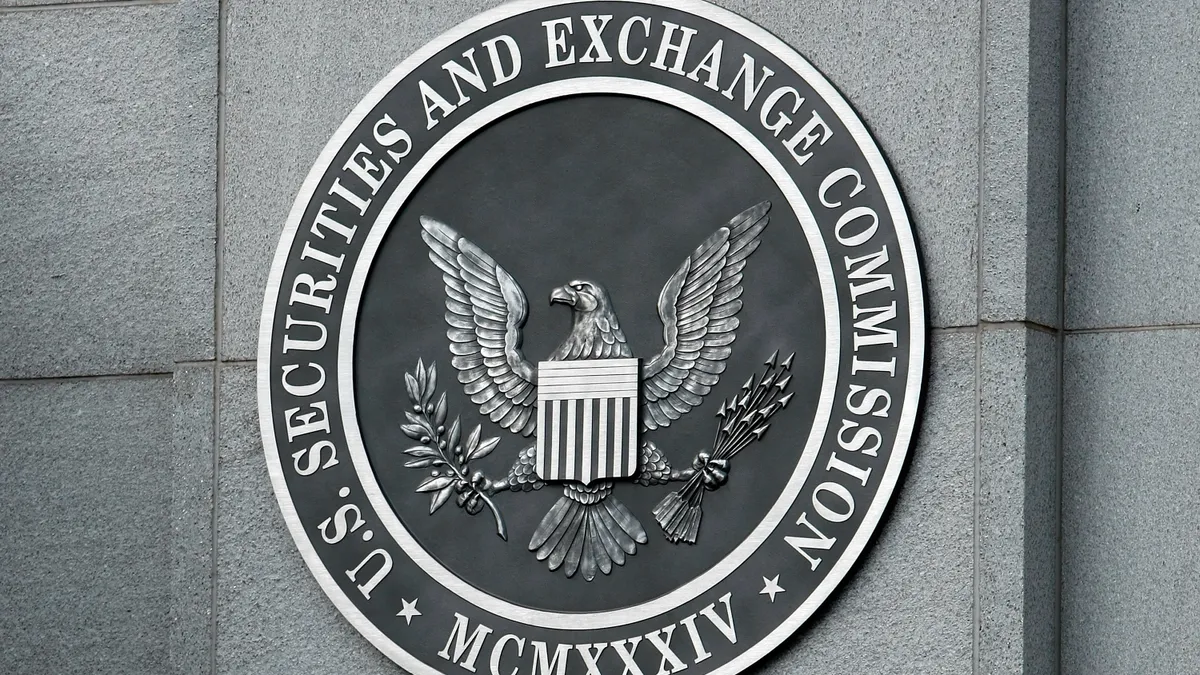Dive Brief:
- The U.S. Securities and Exchange Commission is fining financial services firm WisdomTree Asset Management $4 million for greenwashing and failing to comply with an investment strategy it advertised as incorporating ESG factors, the agency announced Monday.
- The New York-based asset manager will pay the civil penalty for making misstatements about the investment strategy of three exchange-traded funds. These include the WisdomTree International ESG Fund, the WisdomTree Emerging Markets ESG Fund and the WisdomTree U.S. ESG Fund, according to the SEC’s Oct. 21 cease-and-desist order.
- According to the order, prospectuses issued for the three ESG-marketed funds from March 2020 to November 2022 stated the funds would not invest in companies involved in certain “controversial” products and activities, such as fossil fuels and tobacco. However, the SEC found that the funds invested in companies in those sectors, including natural gas extraction, coal mining and transportation companies, as well as those that participated in the retail distribution of tobacco products.
Dive Insight:
WisdomTree relied on data from a third-party ratings and research firm when screening companies for its ESG-marketed funds, but this only identified a fraction of companies involved in fossil fuel extraction, production and distribution, the order said. The SEC said WisdomTree “failed to purchase supplemental data that would have identified additional such companies.”
Further, the order said that WisdomTree was aware that its screening process was flawed and did not omit securities of all companies involved in fossil fuels since at least September 2020 — a discovery the firm is expected to have made while preparing ESG characteristics reports for the funds.
The order states WisdomTree misrepresented the funds’ investment strategies to their respective board of trustees and investors. The misrepresentations led it to violate the compliance rule in the Investment Advisers Act and the antifraud provisions laid out in the Investment Advisers Act of 1940 and the Investment Company Act of 1940.
“At a fundamental level, the federal securities laws enforce a straightforward proposition: investment advisers must do what they say and say what they do,” Sanjay Wadhwa, acting director of the SEC’s Division of Enforcement, said in a press release. “When investment advisers represent that they will follow particular investment criteria … they have to adhere to that criteria and appropriately disclose any limitations or exceptions to such criteria.”
“By contrast, the funds at issue in today’s enforcement action made precisely the types of investments that investors would not have expected them to based on WisdomTree’s disclosures,” Wadhwa added.
The SEC’s cease-and-desist order comes roughly a month after the agency disbanded its climate and ESG enforcement task force, after more than three years of operation. An agency spokesperson previously told ESG Dive that the task force was formed to address greenwashing when it was an “emerging risk,” as investors became increasingly interested in climate- and ESG-related data and products, and the agency will use the enforcement strategies it learned to hold future companies accountable if it sees another rise in risk.
According to the SEC’s latest regulatory agenda released in July, the agency is expected to finalize an ESG greenwashing disclosure rule this month, which is currently in the final stage of rulemaking. With less than two weeks left before October ends, it is looking increasingly unlikely that the rule will be released before the Nov. 5 presidential election.
Earlier in May, a group of 21 congressional Democrats sent a letter to SEC Chair Gary Gensler, asking the agency to finalize the rule designed to combat greenwashing in ESG or similarly labeled funds. The group said finalizing the “Enhanced Disclosures by Certain Investment Advisers and Investment Companies about Environmental, Social, and Governance Investment Practices” rule is “critical for addressing greenwashing and other exaggerated or unfounded ESG-related claims amongst funds and investment advisers.”










